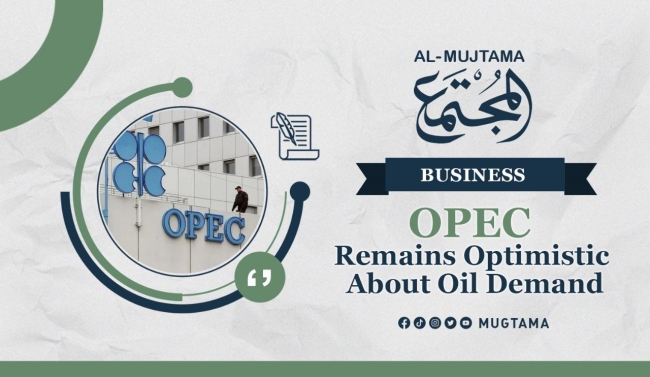Global Oil Demand and Economic Growth
The Organization of the Petroleum Exporting Countries (OPEC) is feeling positive about the demand for oil in the coming years. According to their monthly report, they expect global demand for oil to increase by 2.25 million barrels per day in 2024 and 1.85 million barrels per day in 2025. These forecasts have remained unchanged from the previous month's report.
OPEC also raised its forecasts for economic growth in 2024 and 2025 by 0.1 percentage points. They believe that the positive trend of economic growth will continue until the first half of 2024. The organization stated, "Global economic growth remains strong, and the potential for further upside can be achieved in all major OECD and non-OECD economies."
Oil Production and Prices
In January, OPEC's oil production decreased by 350,000 barrels per day due to voluntary production cuts adopted by the OPEC+ alliance. However, OPEC Secretary-General Haitham Al-Ghais emphasized that this decrease should not be seen as a decline in demand.
Oil prices, which are currently around $82 per barrel, have been influenced by conflicts in the Middle East, supply disruptions, and concerns about rising interest rates. OPEC attributes the recent rise in prices to easing speculative selling pressures, supply disruptions, and strong oil market fundamentals.
OPEC's Expectations and Angola's Exit
OPEC's Secretary-General, Haitham Al-Ghais, expressed confidence in the organization's expectations regarding oil demand. He stated, "We currently believe that our estimates are correct and very strong." OPEC's annual forecasts from last October predicted that global demand for oil would reach 116 million barrels per day by 2045, with growth driven by countries like China, India, other Asian countries, Africa, and the Middle East.
Regarding Angola's decision to withdraw from OPEC, Al-Ghais reassured that it is not a cause for concern. He highlighted OPEC's flexibility and explained that voluntary production cuts reflect the sovereign decisions made by countries to adjust their production. Al-Ghais also mentioned that Angola is welcome to rejoin OPEC in the future if they wish to do so.
Source: Agencies


